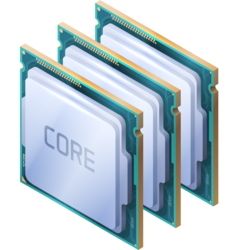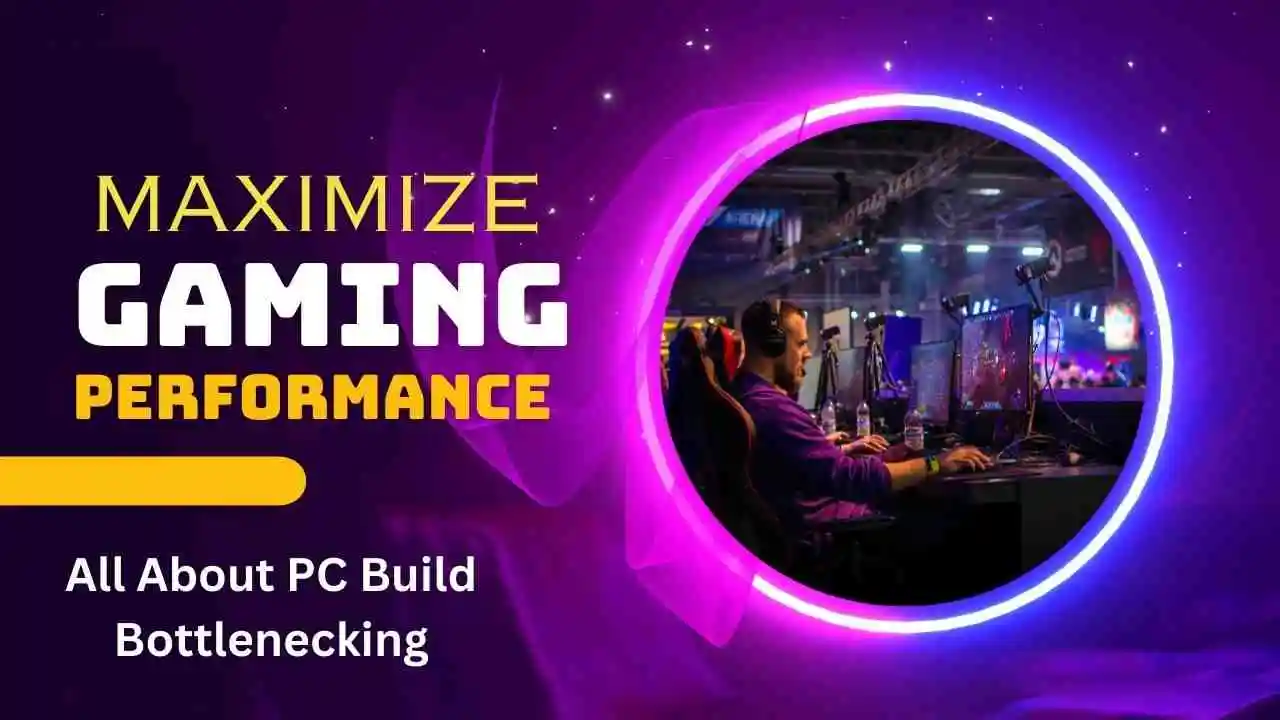Building a gaming PC is a thrilling process, but it may be difficult to ensure that all of the components function together smoothly. among the most widespread problems that gamers have is bottlenecking, which occurs when one component of the PC is unable to keep up with the others, resulting in poor performance.
In this guide, we’ll look at how to accurately identify bottlenecks in your PC build and optimize your hardware configuration for peak gaming performance.
What is Bottlenecking?
Bottlenecking happens when one component of your PC cannot keep up with the others, resulting in decreased performance. For example, if you have a powerful graphics card but a slow processor, the CPU may not be able to keep up with the graphics card, resulting in diminished performance.
Similarly, if you have a fast processor but insufficient RAM, your processor may be unable to retrieve the data it requires quickly enough, resulting in decreased performance.
How to Identify Bottlenecks in Your PC Build?
To effectively examine bottlenecks in your PC setup, you must first identify which components are creating the bottleneck. One method is to utilize a bottleneck calculator, which can help you identify the components producing the bottleneck and provide solutions to improve your hardware configuration.
Here are the steps to take while utilizing a bottleneck calculator:
- Enter your system specifications, such as your processor, graphics card, and screen resolution.
- Determine which components are creating the bottleneck.
- Optimize your hardware configuration by upgrading the bottleneck-causing components.
Maximizing Gaming Performance
Once you’ve determined which components are causing the bottleneck, you can optimize your hardware configuration for peak gaming performance. Here are some suggestions to improve your gaming performance:
Upgrade the graphics card: If your graphics card is causing the bottleneck, consider upgrading to a more powerful graphics card capable of meeting the demands of recent games.
Upgrade your CPU: If your processor is causing the bottleneck, think about upgrading to a faster processor that can handle your graphics card.
Add more RAM: If your processor is unable to access the data it requires quickly, consider adding more RAM to your computer.
Optimize your screen resolution: If your screen resolution is excessively high, you might try decreasing it to optimize efficiency.
What is a Bottleneck Calculator?
A bottleneck calculator is a tool that can assist you detect which components in your computer are producing a bottleneck. It can assist you in optimizing your hardware configuration for maximum performance by recommending ways to upgrade the components that are causing the bottleneck. To utilize a bottleneck calculator, enter your system specs, such as processor, graphics card, and screen resolution. The calculator will then identify the components causing the bottleneck and recommend ways to improve your hardware configuration.
How do you utilize a bottleneck calculator?
A bottleneck calculator is a tool that can assist you detect which components in your computer are producing a bottleneck. To utilize a bottleneck calculator, enter your system specs, such as processor, graphics card, and screen resolution. The calculator will then identify the components causing the bottleneck and recommend ways to improve your hardware configuration.
Here are the steps to take while utilizing a bottleneck calculator:
- Enter your system specifications, such as your processor, graphics card, and screen resolution.
- The calculator will determine which components are creating the bottleneck.
- The calculator will provide ways to improve your hardware configuration.
There are various bottleneck calculators available online, including one offered by PC Builds.
Could you suggest a good bottleneck calculator tool?
Certainly! There are various bottleneck calculators available online that can assist you in identifying the components in your PC that are generating a bottleneck and recommending strategies to improve your system arrangement. Here are a few popular ones:

PC Builds Bottleneck Calculator: This calculator allows you to input your system parameters, including your processor, graphics card, and screen resolution, and find ways to optimize your hardware configuration. It also includes common combinations of components that perform well together.
CPU agent FPS and bottleneck Calculator: This calculator offers a full performance study of your PC build, including specifications, overclocking, gaming, bottlenecks, streaming, and video editing benchmarks. It supports more than 80 games and can assist you in determining which components are creating the delay.

The Windows Club Bottleneck Calculator is a simple and easy-to-use tool for analyzing the performance of your computer system. It can help you discover the components that are creating the bottleneck and offer strategies to optimize your hardware arrangement.
Is PC builds bottleneck calculator legit?
Yes, PC Builds Bottleneck Calculator is a valid program that may help you discover the components in your PC that are generating a bottleneck and recommend solutions to optimize your system configuration.
The calculator allows you to enter your system specifications, such as your processor, graphics card, and screen resolution, and learn how to optimize your hardware setup. It also presents popular combinations of components that function well together. However, it is crucial to note that bottleneck calculators are not always 100% correct.
How does one calculate a bottleneck on a PC?
To calculate the bottleneck on a PC, you need to determine the component that is producing the bottleneck. Bottlenecks are most commonly caused by the CPU and GPU 12. Other components that can cause bottlenecks are RAM and storage.
To determine the component that is creating the bottleneck, you can utilize a bottleneck calculator.
A bottleneck calculator is a tool that can help you locate the components on your computer that are generating a bottleneck and recommend methods to improve your hardware configuration 413.
Conclusion
Bottlenecking can be a bothersome issue for gamers, but by carefully analyzing your PC architecture and optimizing your hardware configuration, you can maximize gaming performance and have a fluid gaming experience.
By following the procedures indicated in this article, you may identify the components that are causing the bottleneck and take action to improve your system configuration for the best gaming performance. Happy gaming! 🎮
